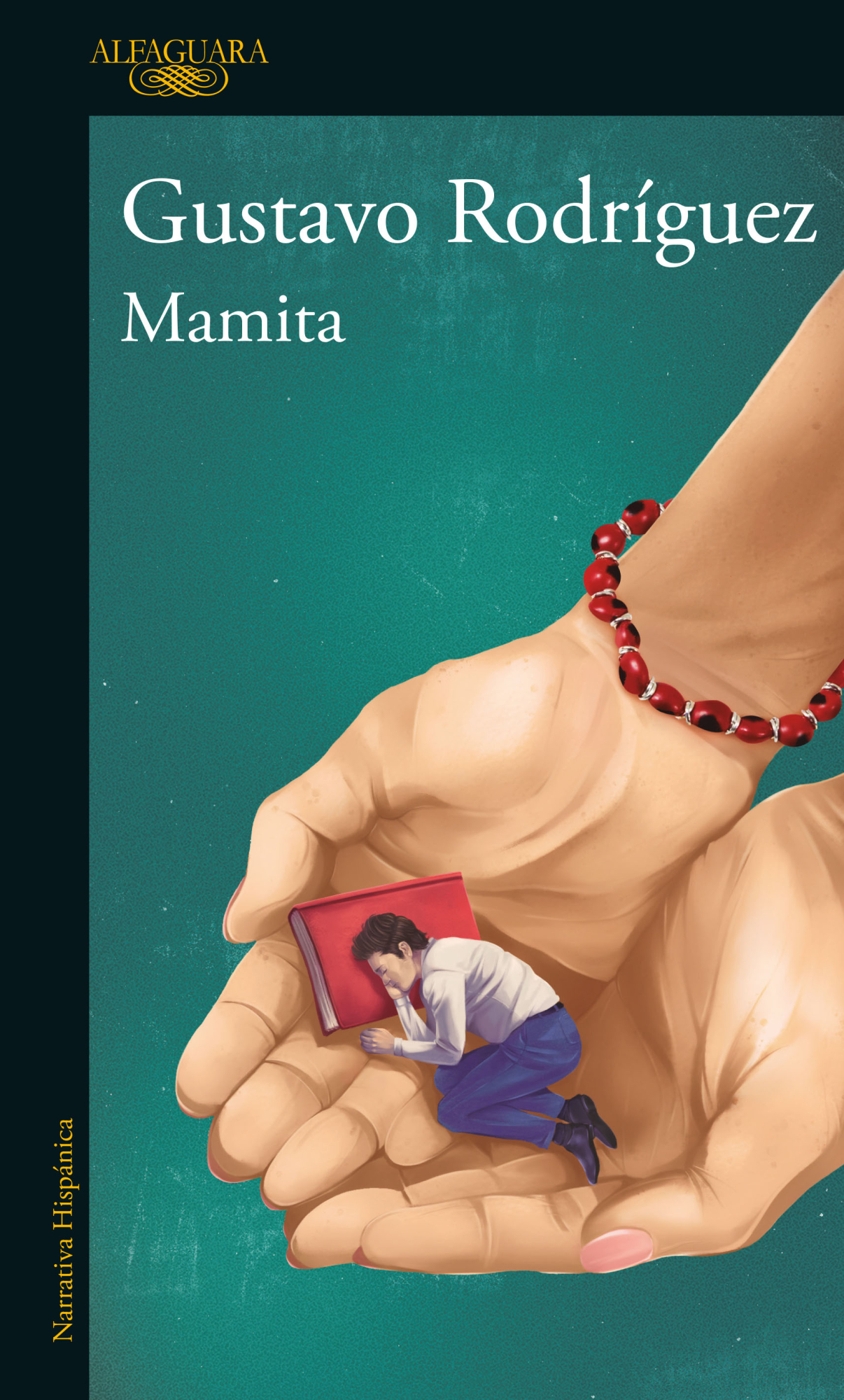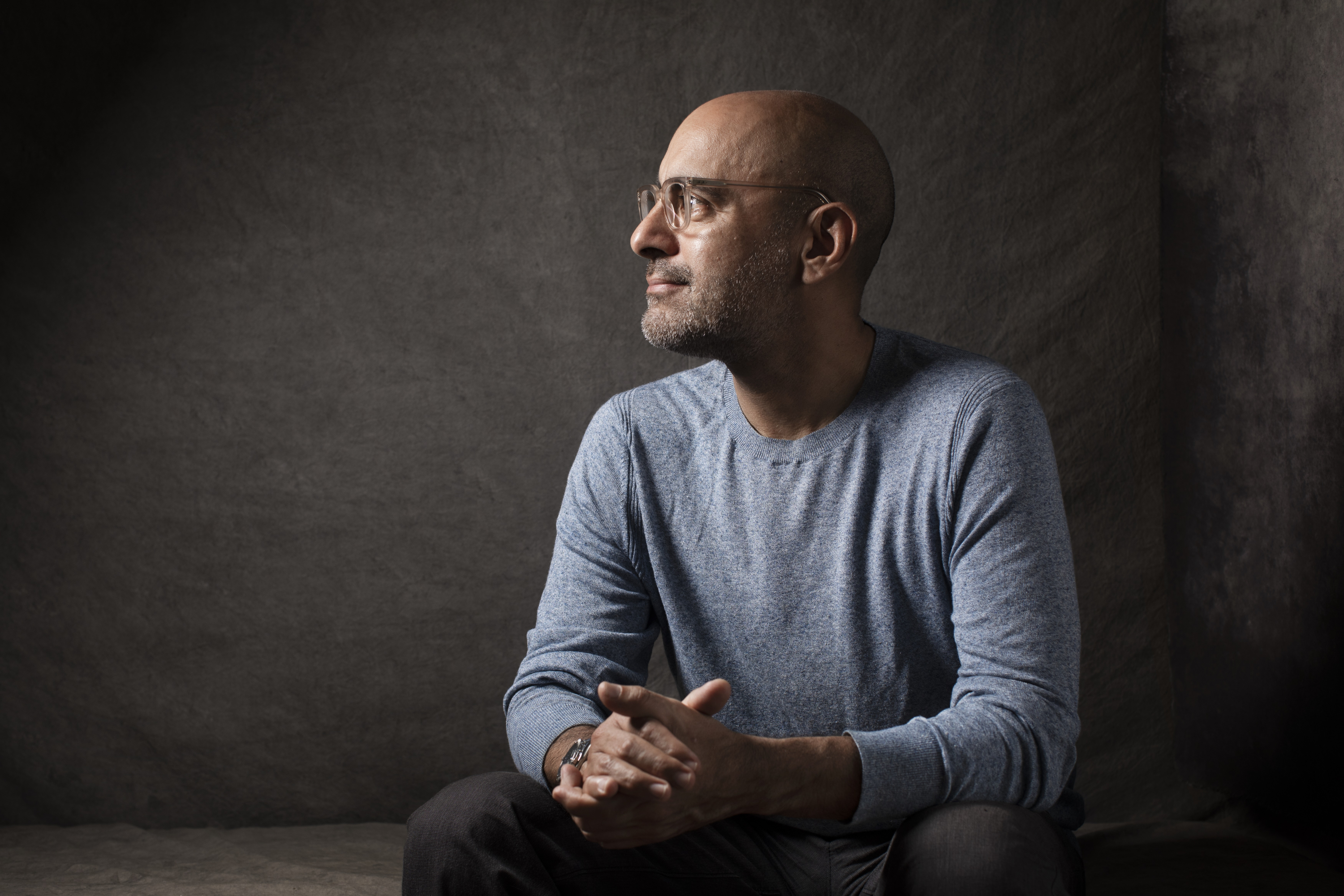'This novel became a kind of act of justice': Gustavo Rodríguez, Peruvian writer

A writer who investigates his grandfather's life in order to write a book and give it to his mother before he dies. His grandfather's story wasn't just any old story: Otoniel Vela —born in the late 19th century in the Peruvian Amazon, who lived his golden age amidst the terrible rubber boom, and who was supposedly a friend of figures like Gustave Eiffel and Jules Verne—became a sort of mythologized figure among his people. But this writer will endeavor not only to unravel his story, but also that of the women who surrounded him and who have preserved his memories.
This is the focus of Mamita , the new novel by Peruvian writer Gustavo Rodríguez, winner of the 2023 Alfaguara Prize. A work that intertwines family relationships with the daily life of a writer—the author's alter ego— who unravels the secrets of his craft; a story that unites past and present with the naturalness of the Peruvian's prose, marked by reflection and just the right amount of humor. It is Rodríguez's most personal novel, and he will be presenting it on Wednesday in Bogotá.
You began this novel at the end of the long promotional period for "Cien cuyes," the work that won you the Alfaguara Award. What was that change of pace like when you sat down to write? After so many trips, planes, and hotels, which are foreign to the typical work of a writer, my body craved solitude and quiet to sit down and write. At the same time, I wanted to escape the curse of the award-winning book. Do something that escaped what most of my readers were talking about, which was the work that won the Alfaguara. Fortunately, I remembered that ten years earlier I had started a project: to give my mother the story of her father. I had a few paragraphs, I'd done some research, and I thought: well, maybe resuming that project, not from scratch, would take the pressure off me of having to come up with something. I sat down and completely overhauled what I had up until then.
You had a promise to your mother to tell her this story. Did you share the same curiosity about your grandfather? Especially in my childhood and adolescence. As an adult, not so much. When you're a child and haven't had much of a world, and your grandmother and mother begin to tell you about this mythical figure who built a palace next to the largest river in the world, who knew Europe long before his country's capital, who was a friend of Gustave Eiffel and Jules Verne, the notion of a superhero forms in your head. Later, when you start traveling and comparing and calculating, you realize that your grandmother and mother might have been exaggerating some things. Then the interest varies in intensity. What I discovered while writing the novel is that my attention wasn't so much focused on digging deeply into the life of this mythical grandfather, but on learning about the past of the women who told me about him. In a way, Mamita became a kind of act of justice. Or of balance.
This point is key because the women surrounding him take center stage. In fact, the novel allows us to see how, over the years, women's place in society has changed... As fiction writers, when we want to deliver a story, we don't realize all the worries we pour into it while we're writing it. If I had published this novel ten years ago, I probably would have titled it Grandpa . But in this last decade, I've been increasingly appreciating the value of the female lineage in my story. Unwittingly, I've been tracing the female line from my great-grandmother—who was illiterate, a cook for bourgeoisie during the rubber era— to my daughters, who also appear as characters and who live in a diametrically opposed world in which they—because they are fortunate or privileged—have higher educations, travel, are cosmopolitan, and it doesn't occur to them to have to resort to a husband to fulfill themselves in life. The complete opposite of what my grandmother experienced.

Rodríguez's new work was born out of a debt he owed his mother: to tell the story of his grandfather. Photo: Morfi Alberth Jimenez
Mamita is a different book within my body of work. Usually, to write a novel, I first fall in love with a plot. But in this case, I didn't have a plot, but rather a debt. Curiously, the figure of having to pay that debt became the plot. The story of a writer who must deliver a novel to his mother against time. From that perspective, the metaliterary aspect was in order. What I did create—and in this way it resembles the rest of my novels—was a basic structure. Because I'm a very insecure writer. I prefer to get around with a cane, crutches, and a two-wheeled bicycle so I don't have to worry about what I should write about while I'm writing, but rather focus on how to write it.
Delving into family memories is almost a literary genre, but it carries the risk of causing rifts. You mention this in the book: there may be occasional victims of indiscretions. How much do you reflect on this when sharing details about those close to you? Until Madrugada , that is, up to four novels ago, I was considerably more modest with my relatives when it came to using them as character templates. Starting with that novel, I realized I grew up in a family of unicorns. And when you grow up among unicorns, you assume the rest of your environment is the same. But that's not the case. My family is full of dazzling characters. So I decided not to disguise their personalities too much and began to practice a kind of risk management. I involved them, telling them I was going to write crazy stories with characters very similar to them. I told them I was going to make them look ridiculous and then contradict myself. We made the subject a running joke. They realized my writing wasn't about revenge; all I wanted was to share the wonder and affection that fill me when I think of the relatives around me. Honestly, they haven't complained. With Mamita , I paid special attention to what my mother might think. But in the end, I received her blessing.
Of course, because in this novel, you develop two aspects that can shed light on the figure of your grandfather. One, the age difference between him and your grandmother (he was 50 years older; they began their relationship when she was 15). The other, the context in which he developed his life and his business, amid the so-called rubber boom, a period tainted by violence against indigenous communities. Did this pose any particular narrative challenges for you? As a child, I heard these stories and normalized them. The age difference between my grandparents, the treatment of indigenous people on his haciendas. Talking about this involved unlearning for me as I grew up. Because later, one begins to notice things that would no longer be well-regarded today. In this regard, I faced two challenges in Mamita . On the one hand, if I was going to give this novel to my mother, I had to be critical but also loving. Critical of her father and his surroundings, loving toward her. On the other hand, and more fundamentally, I believe that literature doesn't have to be primarily denunciatory. A fiction writer should be interested above all in delivering a very good story. If it involves deep social concerns, they will naturally seep through its cracks, and there's no need to try too hard to point them out with a neon arrow. Readers are intelligent enough to notice the gaps in these problematic topics.

Cover of his new book, published by Alfaguara. Photo: Private Archive
Only in the area where it occurred, and basically with the victims. In the rest of Peru, the genocide of the early 20th century is unknown. It's monstrous that it should be this way. I was never taught about it in school. If I found out, it was because I'm an inquisitive reader, because I've done my own research. But the memory of that massacre doesn't exist in the collective imagination. The jungle is so forgotten in my country that we consider the war we had with Colombia invisible. Why? Because it happened right there, in the jungle.
You touch on another interesting theme in the novel, about the importance of not forgetting the past, even if we don't like how it was. You raise the risk of this tendency to destroy monuments or statues of figures who are viewed critically today... That's extremely dangerous. When you tear down monuments, you eradicate the possibility of contrast. If you maintain them and explain how problematic that era was, you encourage discussion and reflection. Tearing them down leaves only emptiness and that pernicious vision many children today have, that the world was invented the day they were born. So we're condemned to always repeat the same thing.
In this regard, there was a fundamental event that led to the writing of 'Mamita': the tribute paid to the Palace Hotel, the legendary building that her grandfather built at the beginning of the 20th century in Iquitos, whose image ended up on a coin in her country... I grew up with images of that palace built next to the Amazon, with materials brought from Europe by river. Today, it's no longer a hotel; it's the headquarters of the Army's Sixth Military Region in Iquitos. What you learn from a young age creates the notion that it's only interesting to you. But that idea changed about ten years ago, when my mother received an invitation to attend the unveiling of the new sol coin, which all Peruvians would carry in their pockets. I accompanied her to the Central Reserve Bank and there discovered that the palace I'd heard about as a child had been officially endorsed as a monument of national interest. Seeing my mother standing, tiny, an octogenarian at the time, next to the coin's effigy, I said to myself: this is the sign I needed to realize that all my life I'd had a great story to share.

The presentation of the novel in Bogotá will be at the Ficciones bookstore, on Wednesday at 6:30 pm. Photo: Morfi Alberth Jimenez
It's hard to explain. I revived Hitler Muñante from a previous novel, where he and an alter ego of mine meet. I came up with the idea to resurrect him because a very astute reader in Spain told me he'd love to see him in another of my stories. The idea stayed with me, and to give Mamita a contemporary feel, humor, and other nuances, I revived him. Honestly, I don't know where my alter ego's affection for him comes from. Perhaps Hitler is the confluence of many wonderful people I've interacted with throughout my life who weren't from my family. People who have helped me in service jobs and who end up being endearing. It must come from there. Or from a dream of mine that we should have more relationships of that kind, in societies as classist and racist as ours.
After writing the book, did your perception of your grandfather change at all? Yes. The arc of my relationship with him has evolved. I admired him greatly as a child. I questioned him as an adult. But I eventually made peace with him, being forgiving and understanding that he was a child of his time in a very troubled country like mine. A country where even the color of your skin you're born with can make you behave in a certain way.
Towards the end, you talk about the questions you know will arise in the future and that your mother will no longer be able to answer. Old age and death are present in other works of yours, such as "One Hundred Guinea Pigs." When did your interest in these themes begin? Especially in the last ten years. One Hundred Cuyes and Mamita are novels I wouldn't have written at 40, because I still felt far from the process of starting to age, and my mother was still very much alive. But you move forward in life and begin to consider topics that didn't occur to you before. Regarding what you said about questions, that's a lesson I began when my father died, almost twenty years ago. After his death, I realized I had been left with questions that no one would be able to answer. I'm not one to send messages with my novels. But if I had to convey one, in this case it would be this: ask as many questions as you can while your parents can answer them.
eltiempo





